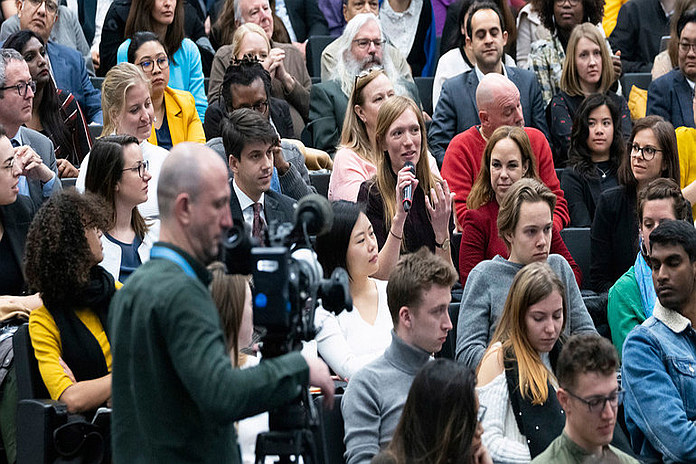NEW YORK, USA, (UN News) – Countries must do more to harness the talents of young people to address COVID-19 pandemic and its aftermath, the UN secretary-general told the security council on Monday during a videoconference meeting to review the five years since its adoption of a landmark resolution on youth, peace and security.
António Guterres said despite youth engagement during this period including in the 2016 peace process in Colombia and in shaping the Global Compact on Refugees two years later – opportunities for them to contribute remain inadequate.
“The world cannot afford a lost generation of youth, their lives set back by COVID-19 and their voices stifled by a lack of participation”, he said.
“Let us do far more to tap their talents as we tackle the pandemic and chart a recovery that leads to a more peaceful, sustainable, and equitable future for all”.
In presenting his first report on Security Council Resolution 2250, the UN chief listed how COVID-19 has impacted the world’s young people, with more than 1.5 billion of them now out of the classroom.
Youth were already confronting numerous challenges even before the pandemic, including in accessing education, or through being affected by violence and conflict. Those pressing for peace or upholding human rights have been threatened.
Despite these obstacles, young people across the world have joined the common fight against the coronavirus disease, supporting both frontline workers and people in need. And they continue to push for change.
Gatwal Augustine Gatkuoth Yul, from South Sudan, spent his formative years in a refugee camp in Uganda. He founded the Young-adult Empowerment Initiative (YEI), which supports young refugees in building peace and “unlearning” violence.
Mr Yul said despite relative peace in his homeland, inter-clan violence, cattle raids, and child abductions are among the security issues that persist.
“South Sudan’s youth are not asking for more policy documents and resolutions. We are asking for proactive involvement of youth in all levels of decision-making,” he told ambassadors.
UN Youth Envoy, Jayathma Wickramanayake, spoke of the need for more meaningful partnerships between young people and the civil society organizations and government institutions that work on the youth, peace, and security (YPS) agenda.
“To date, there are no national action plans on YPS but I’m pleased to note that in some countries, these are in the process of development”, she reported.
“For a national roadmap to be successful, a participatory, transparent, and youth-led process with adequate resources are needed.”
The UN secretary-general issued a four-point call to action for the Council, urging members to do more to address the various challenges facing young people. He also called for investment in youth participation, but also in their organizations and initiatives.
“We must strengthen human rights protections and protect the civic space on which youth participation depends”, he continued.
“And fourth, we must emerge from the COVID-19 crisis with a determination to recover better – massive increasing our investment in young people’s capacities as we deliver the Sustainable Development Goals”.
The 17 Sustainable Development Goals (SDGs) are considered the blueprint for a better future for all people and the planet. The deadline to achieve the SDGs is 2030.





